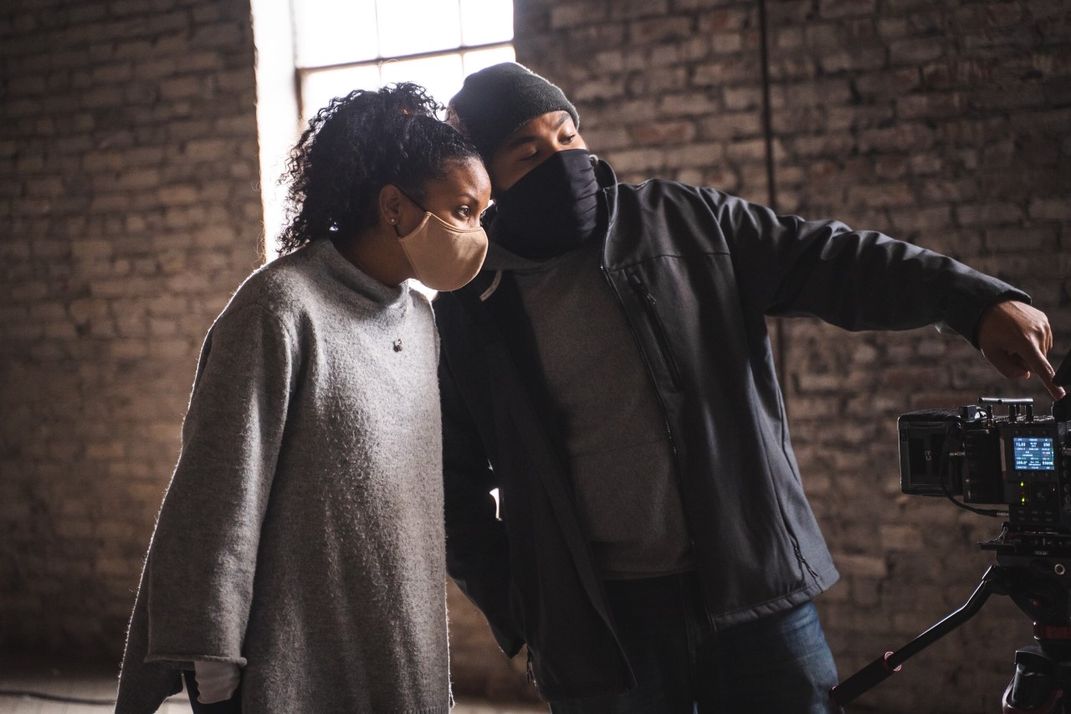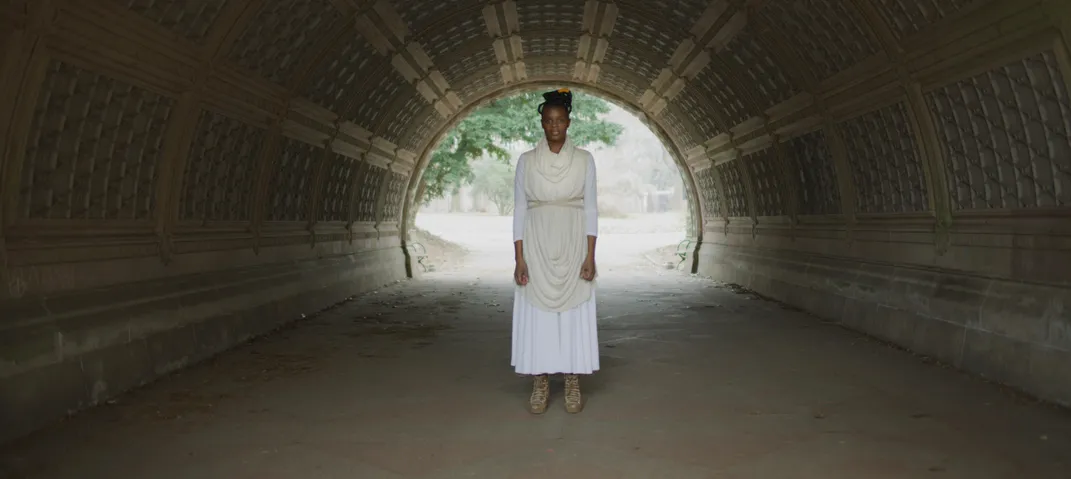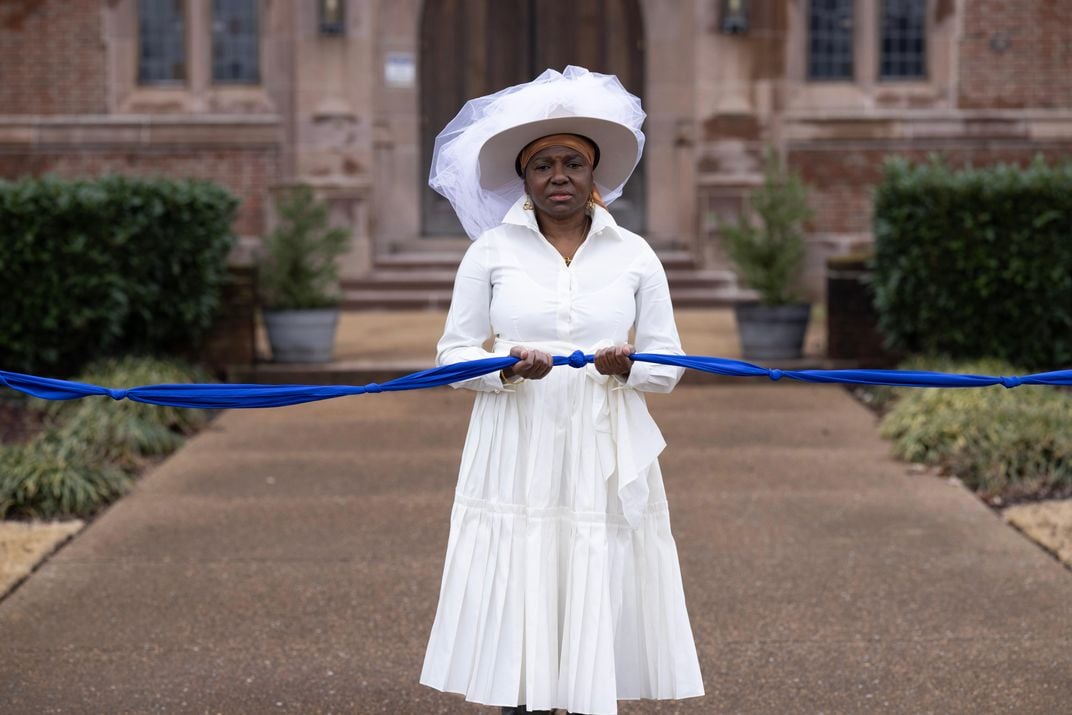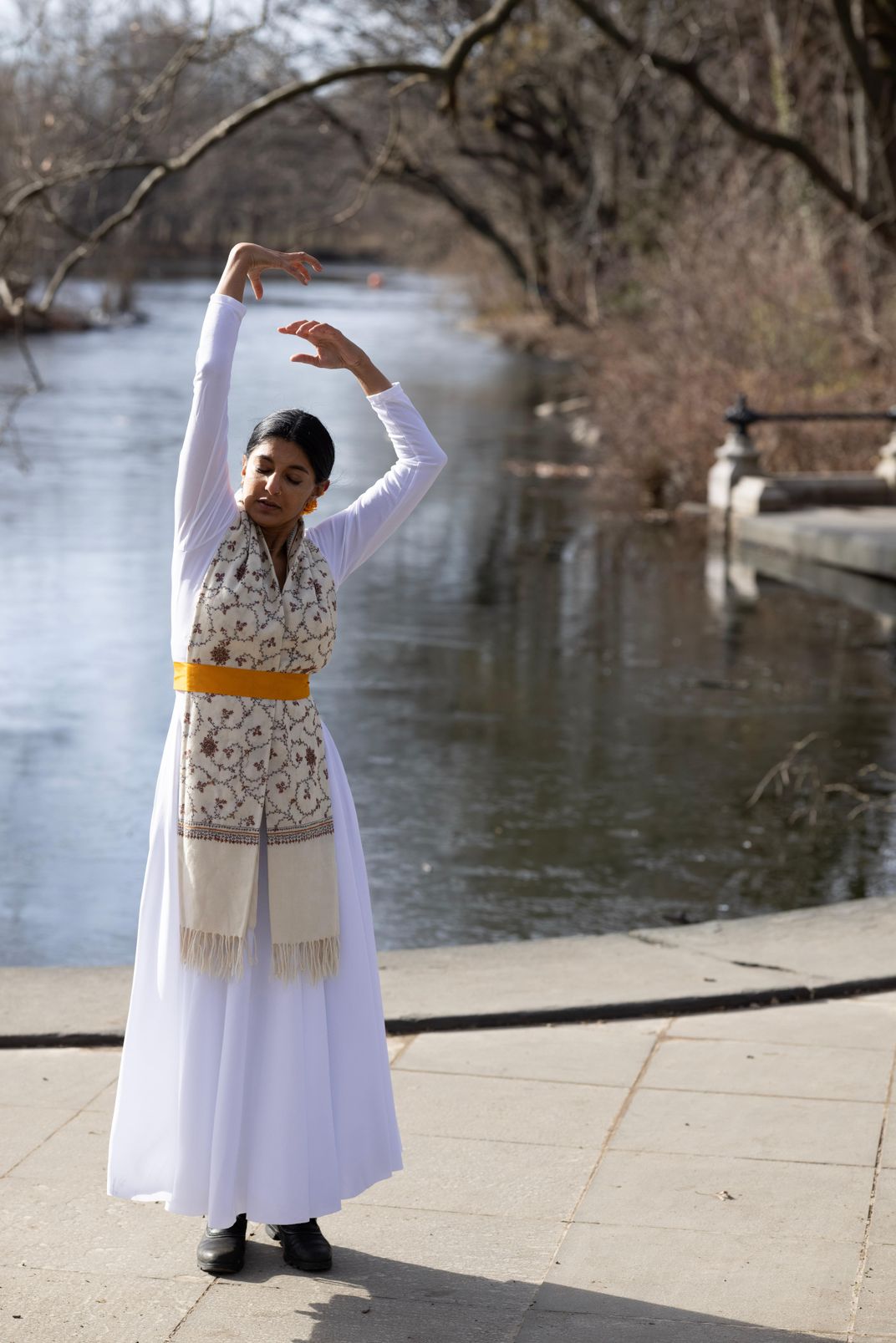How Seven Women Artists Are Celebrating Kamala Harris’ Historic Inauguration
The group’s upcoming short film, titled “When We Gather,” honors the achievements of women who preceded the vice president
:focal(3783x1911:3784x1912)/https://tf-cmsv2-smithsonianmag-media.s3.amazonaws.com/filer/5c/f2/5cf2cba2-f7a4-46fd-93dd-6774e03fdf7f/maria_magdalena_campos-pons_tommy_oliver_1.jpg)
When Kamala Harris was inaugurated as vice president today, she marked a historic milestone, becoming the first woman, first black woman and first woman of South Asian heritage to hold the nation’s second-highest office.
In her acceptance speech last November, Harris thanked her mother, Shyamala Gopalan Harris, an Indian scientist who immigrated to America at just 19 years old to attend graduate school.
“She maybe didn’t quite imagine this moment,” the vice president-elect remarked. “But she believed so deeply in an America where a moment like this is possible, and so I am thinking about her and about the generations of women, black women, Asian, white, Latina, Native American women—who throughout our nation’s history have paved the way for this moment tonight.”
Watching this speech, artist María Magdalena Campos-Pons found herself imagining a circle of women dancing, inspired by the Yoruba religious rituals of her childhood, reports Sarah Cascone for Artnet News. A professor of fine arts at Vanderbilt University, she quickly contacted artist colleagues across the United States to make her vision a reality before inauguration day.
Campos-Pons’ resulting three-minute film uses dance to celebrate the legacy of the women who came before Harris. Titled When We Gather, the collaborative art project will debut for free online on January 27 and remain accessible through February 15. Audience members are encouraged to participate by submitting short video responses to prompts—such as “Think of a woman who has had or is having a deep impact on shaping who you are”—via the project’s interactive website.
Though the artist had originally envisioned a circle of women surrounding the White House, security measures and travel restrictions related to the Covid-19 pandemic rendered that scenario impossible. Instead, Campos-Pons employed filmmakers Codie Elaine Oliver and Tommy Oliver to craft a short video showing seven women, clad in suffragist white, dancing at locations across the country. Per the Art Newspaper’s Hilarie M. Sheets, featured sites include Prospect Park in Brooklyn, the historically black Fisk University in Nashville and an amphitheater in Houston.
Campos-Pons worked with performance artist Okwui Okpokwasili; poet and sound artist LaTasha N. Nevada Diggs; and interdisciplinary artists Dell Marie Hamilton, Jana Harper, Lisa E. Harris and Samita Sinha to create When We Gather, which blends poetry, dance, film, music and photography to offer a meditative experience. Gallerist Wendi Norris and New York–based nonprofit Creative Time served as the project’s producers.
Actor Alfre Woodard narrates the short film, reading a poem by Diggs that “evokes a young girl’s immigrant journey,” according to the Art Newspaper.
The composition states, “[M]ake way for industrious ladies... the house needs a cleaning.”
When We Gather will debut as part of a 35-minute presentation that features behind-the-scenes footage, interviews with participating artists and commentary from art historian Nikki A. Greene, reports Risa Sarachan for Forbes. As Artnet News notes, the team hopes that the film will go on to tour universities and museums.
Campos-Pons, who immigrated to Boston from Cuba in 1991, tells the Art Newspaper that Harris’ invocation of her mother resonates with her own experience.
“I, too, had a mother who envisioned better things for me and I came to America as a result of her pushing me to dream larger than she could do,” she says.
In a joint statement, the artists cite Harris’ post-election remarks as a call to action.
“She called on us all: mothers, grandmothers, sisters, aunts, girls; cis and trans, to celebrate with her,” they explain. “When We Gather is our collective answer to her invitation.”
/https://tf-cmsv2-smithsonianmag-media.s3.amazonaws.com/accounts/headshot/nora.png)




/https://tf-cmsv2-smithsonianmag-media.s3.amazonaws.com/accounts/headshot/nora.png)